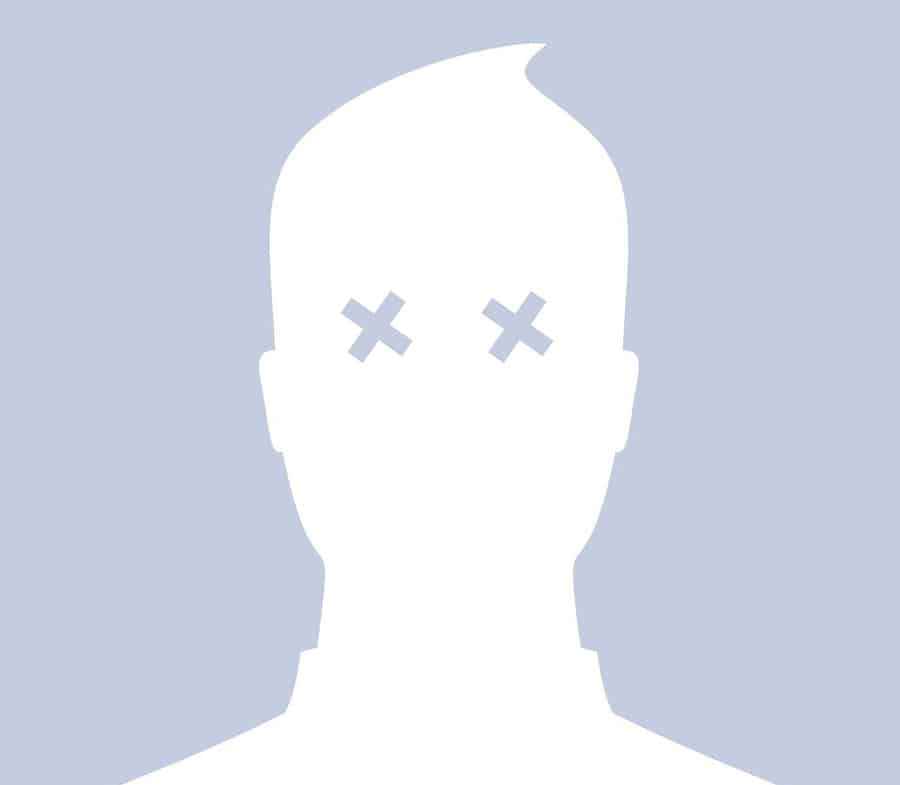
Above: The Facebook profile default, adapted for the current situation.
BitDepth#1046 for June 21, 2016
Last week, a friend of mine was killed. He died of multiple gunshot wounds.
In the curious world that is modern digital interaction, this was a person I shared messages with, responding to Facebook chat requests roughly once every four months.
We shared a first name, and he would sometimes initiate his chats with a reference to the “tech savvy” Mark.
We last exchanged typewritten words on June 06, and his last words to me after an exchange about what we were doing right then (I was exhausted after a long day of teaching and working on a leader for the paper); “Don’t get yourself am worked up. You’ll stress out yourself.”
It was seven minutes to nine.
I scrolled through a list of hundreds of messages on Saturday and Sunday, tracing a thread of intermittent conversations over the course of the last four years, beginning on April 19, 2012 with a cavalier “Hey.”
He claimed to be a reader of this column, and that carried our early text chats past some rocky points. Telling a writer that you read his regular output is rather like saying, “I validate your life and purpose on the planet.”
Our first exchanges of words almost crashed to a halt on the poorly concealed indifference and polite apathy I bring to conversations with strangers on Facebook.
“Your introduction was poor,” he wrote in that first exchange of words.
“I came at you with excitement and you were like, um okay! Ppl add ppl to become friends.”
I acknowledged his remonstrance, and we began again.
It wouldn’t be the first time he brought me up short, yet not once in that four years did I speak to this young man, nor did I ever meet him in person.
Most of the reason for that is on me. I rarely initiate contact of any form with anyone on Facebook.
I’ve gone on to make friends through social media, real world acquaintances who now align with the human presence that we normally associate with the term. Yet, the idea of a friend now seems quaint in a world in which threads of bits link people, agendas and intent into a web of engagement that offers the verisimilitude of a real connection.
I found out about the young man’s death from a mutual friend on Facebook, someone who had stepped from the phosphor glow of the computer screen and the friendly impersonality of a profile picture to actually meet the young man.
What he shared with me about his encounters offered a pivot on some of those conversations that I’d suspected but never engaged.
My Facebook profile is a curious thing, and it’s one that annoys and frustrates people who know me from the meat world.
I share very little that’s truly personal, share nothing about my family and take liberal positions on most controversial matters, inclusive of gender equality and same-sex debates.
As a consequence, some folks fill that vacuum of information with their own assumptions and I’ve had to gently steer some private conversations from an incorrect reading of my own, personal gender preference.
Based on my conversation with our mutual friend, that may have been a consideration in the occasional frustrations I stirred in our late friend, but there’s no way to ever know that now.
As I scroll through four years of messages, I’m struck by the comedy of errors they misrepresent. The false starts, aborted discussions, abrupt truncations of exchanges, the efforts to connect and find some kind of mutual ground in interactions that never seemed to go anywhere.
It’s like a text-based comedy of doors, a farce with an indeterminate point to make and a subtext of Kafka, forever restarting itself and trailing off in misunderstandings and petulance.
I look back at all this and in a very 21st century way, this dead person was my friend in all the ways that mattered. He constantly tried to understand me and what I was doing, asked for advice and persevered even when it seemed that nothing about our exchanges was going anywhere.
He was far more patient than many of my real friends, but he is a digital ghost. I know his face only from his profile pictures, which will never change again. I understand him only through his Sisyphean effort to push our engagement up the hill of my patient deflections.
And now it’s over.
All that’s left now are words, circling each other without landing, their tiny black characters scrolling down my screen like corbeaux with nothing to feast on.


Is it that there is a fear of going beyond the virtual friendship? Could be that the built in reality is that the real in-person relationship would never even survive the first face to face, but online it could survive as long as you’re on each others’ friend’s list?
Interesting analysis and perspective as usual Mark. But you’ve left me wondering what was your emotional response, if any. That you were moved to write on the subject hints there was at some level.